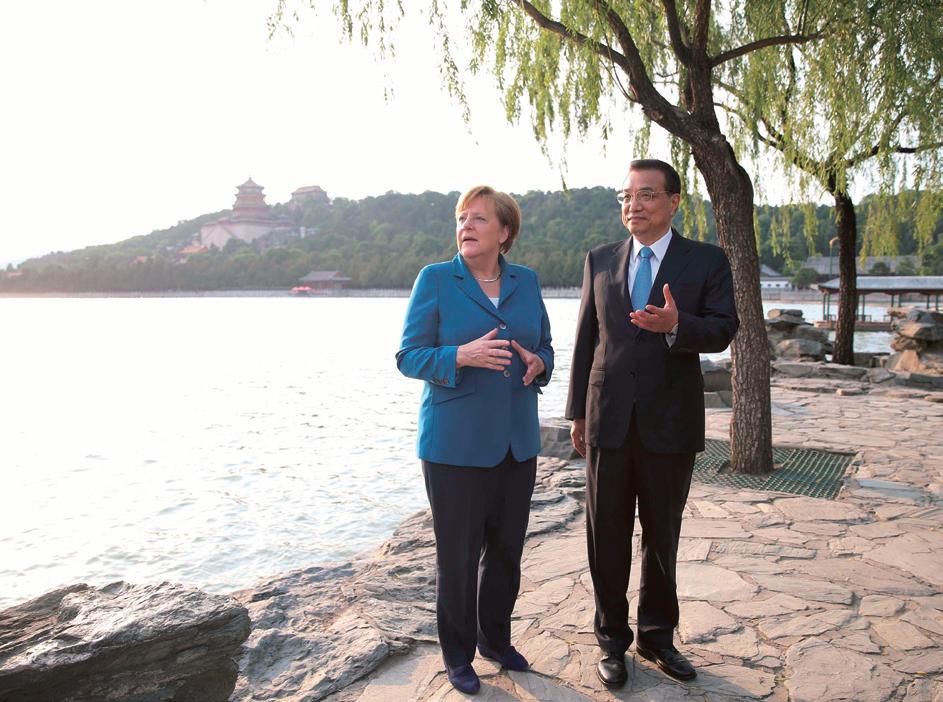German Chancellor Angela Merkel made her ninth official visit to China from June 12 -14 amid speculation that her administration is seeking a closer trade relationship with the country.
The European Parliament denied China, the bloc’s largest trading partner, with market economy status in April.
Germany, commentators have claimed, nevertheless retains a “practical, business-oriented” attitude towards its own bilateral relationship with Beijing, now the fourthbiggest destination of German exports after the US, France, and Britain.
As on her previous visits to China, Merkel brought with her a huge business delegation, including top executives from Volkswagen, BMW and Daimler AG. In the fourth round of government negotiations in Beijing, China and Germany signed over 20 agreements on business cooperation in more than 10 fields, including finance, energy, smart manufacturing and highspeed rail.
One highlight was a statement that Airbus would build its first helicopter assembly line in Qingdao, Shandong Province.
Zhang Jianping, international economic cooperation director of the Foreign Economic Institute under China’s National Development and Reform Commission, told the 21st Century Business Herald that Germany has already built an industrial park in Qingdao, adding that cooperation on a helicopter assembly line will further improve the city’s reputation as a manufacturing hub. Merkel’s final stop was in Shenyang, Liaoning Province, where the government is trying to revive a laggard local economy through structural reform.
China’s biggest industrial center, Shenyang is trying to shift focus to high-tech industries, as similar areas of Germany have successfully done. During her visit, Merkel commented that Germany has a strong interest in participating in this transformation, a message of support that local observers claimed would give a much-needed boost to industrial upgrading in China’s rust belt.
In 2013, the German government launched its Industry 4.0 strategy, which some analysts have claimed was the inspiration for China’s Made in China 2025 initiative, which was announced two years later. Zhang believes that Germany is a valuable source of technology for China, while China can offer Germany capital, resources and a huge potential market.
Merkel will return to China in September to attend the G20 summit in Hangzhou, Zhejiang Province.

 Old Version
Old Version